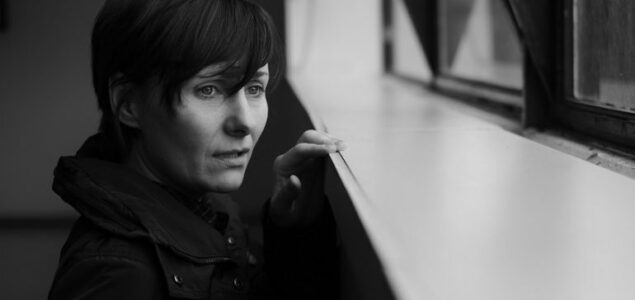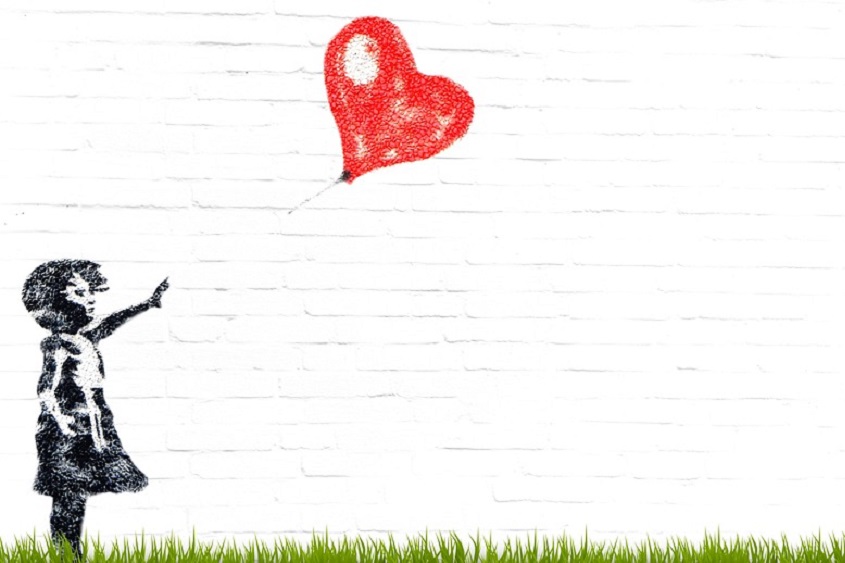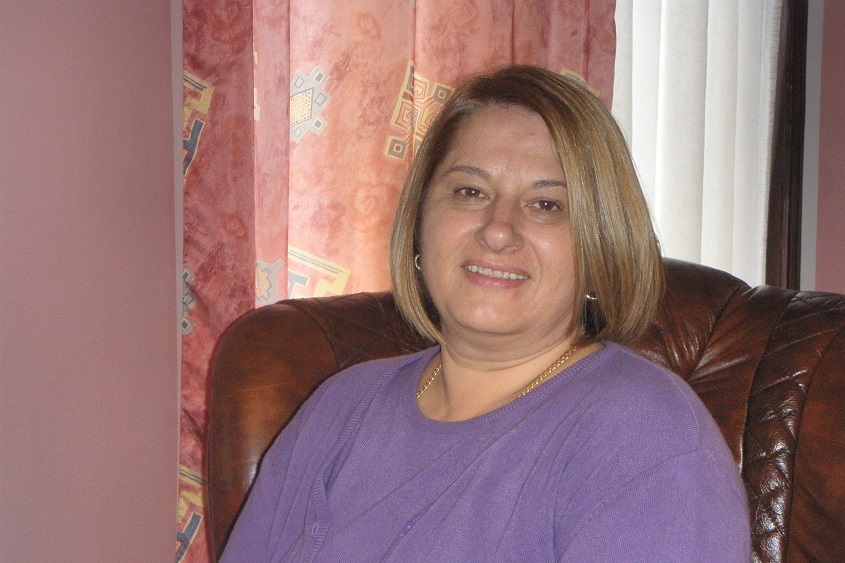Mothers at the mercy of ex-husbands and a freak system
Povezani članci
- Croatian MEP Sympathizes the Fascist Movement
- I FOUND MY OWN MICRO-PIECE OF THE PARADISE
- Abuse of the power of attorney: Lawyer more expensive than the compensation
- They delivered a crusher from Serbia to Banovići without a public invitation, and completed the “papers” retroactively
- The story of “pre-Christianity” ends in massacres and concentration camps
- New deadlines and new millions for the Doboj Hospital for the Chinese

Photo: Pixabay
Hundreds of fathers brutally abuse the fact that after the breakup of a marriage and family union, children are most often entrusted with the care and custody of their mothers by not paying alimony and requesting custody that they don’t actually want, with which they reconcile and settle accounts with their ex-partner.
Written by: Andrijana Pisarević
The state and its institutions in charge of taking care of the most vulnerable categories have no real answer to this phenomenon, so fathers easily get out of their obligations and overwhelm mothers with lawsuits and demands, while the mother, often a victim of violence, also fights against the attacks of her ex-husband, but also the system, which is definitely not on her side.
This is what mothers who have been struggling for years to survive a breakup with their partner and feed their children told eTrafika. Their story is supported by documents that are in our portal’s possession, as well as by experts in this field. They say that the collapse of a marriage in itself is very difficult for both parties, that women with young children are very vulnerable after getting married, and that the system, through its negligence, has enabled fathers to avoid their obligations and settle accounts with mothers behind the children’s backs.
As if this is not enough, they are very often exposed to condemnation and misunderstanding of the environment, and the hardest thing for them is that they cannot get help even in the centres for social work, which should provide them with the best possible logistics for starting a new life.
There are examples like this at every turn. One mother from Banja Luka, with whom we spoke, managed to get a divorce after five years of trial, but the custody status of the children, who are with her all the time, is still not resolved. She says that from the moment she left the shared apartment with the two girls, the burden of maintenance and care fell on her alone. There was no help.
“The system is certainly not friendly to children. When spouses divorce, the process of granting custody lasts from half a year to a year. Even when everything is agreed upon, half a year is the fastest possible time until the children receive support. Of course, that’s not my case. I have been in court for more than five years and the issue of custody of the children has not yet been resolved and there is no document that would be the basis for paying alimony. During this time, the father does not give a single mark for support. When the children saw him, he paid for the food they ate while they were with him and that was it. They don’t want to contact him anymore, they have grown up and realized that he uses them as an instrument for reckoning”, says our interlocutor.
She adds that during the divorce, only the parents are the focus of the court and the Center for Social Work (CSW), and the children are secondary. Everyone is concerned with making sure that one of the parents is not harmed, completely neglecting the fact that all the time these processes last, the children suffer and suffer.
“CSW workers are slow and sluggish in their tasks, and my daughters are always shocked when they go there. I can’t say whether it’s unprofessional or not, but that slowness and inertness say something. They only start something if you hang over their head. It was very difficult for us at the beginning. When we moved away from my husband, I couldn’t take anything with me except my personal belongings. He didn’t even give up the children’s piano. Not to mention the washing machine, beds, or fridge. I had to buy all that. He never felt the obligation to provide something for the children, and when I called him to help, he said that he is not an ATM”, says the mother.
Fathers, she says, make ample use of the slowness of the system, abusing loopholes in the law, appeals, objections, scheduling and cancelling hearings, postponements, everything to drag on and on, even though this is to the detriment of the children.
“Court proceedings last a year, and the child needs support the first day after the parents separate, to get through the most difficult period. I’m looking forward to the alimony fund, but even that doesn’t help those who don’t have better judgment. It would be wiser if alimony is paid immediately after the filing of the divorce action. Children need maintenance and let the parent they are not with pay because you cannot take care of the children afterwards. It doesn’t work that way”, she says.
Another mother left her partner because of violence, after which she ended the relationship and returned to her parents. Six years later, she is still unable to claim child support despite a court order ordering it. She says that her ex-partner has now managed to convince the CSW workers to give him custody of the child, despite the history of violence, non-payment of alimony and other problems.
She claims that the workers of this institution who are handling her case are trying in every way to defame her and take away her child and that they are persuading her ex-partner to initiate proceedings against her in the CSW.
“The Center for Social Work, despite the fact that this is about a bully who will not pay for the support of his own child, wants to take my child away and assign it to him. I don’t know why the workers acted like that, but I know that their solutions are full of untruths. A worker even told me once that she was going to write the worst about me. I filed a complaint with the Ministry of Health and Social Protection of the RS. I also asked for the exemption of those workers and I complained to the director”, said the mother.
Unfortunately, neither the Center for Social Work of Banja Luka nor the Ministry of Health and Social Protection of the RS managed to get answers to our questions regarding this case. Both institutions replied that they could not talk about the specific case due to the protection of the resident’s personal data. Although we repeated that we would not publish the identity of the child and that we were looking for some explanations, we received the same answer again.
“We are not allowed to present any information or data about this case specifically, and as for speaking in general, each case is a story in itself, and each procedure is different”, they told us in the CSW Banjaluka.
The Ministry of Health and Social Protection says that they cannot make the requested information available to us or make public any information about possible procedures in such cases, due to the confidentiality of personal data, the protection of minors and the obligation to keep official secrets.
“Taking into account the content of your inquiry, we inform you that the Ministry of Health and Social Protection makes decisions on the basis of currently available evidence and facts established in the procedure, and in accordance with valid procedural and substantive regulations. We note that the legality of every decision of this body is subject to review within the administrative court procedure, about which the parties are instructed in the prescribed manner”, said the Ministry.
The director of the Safe House in Modriča, Gordana Vidović, says that these examples are indicators of the hostile attitude of the system towards mothers and children and favouring fathers to avoid their obligations. She says that there is a lot of arbitrariness in the centres for social work, but also before the courts, which should be there to protect the rights of children and parents. As an example, she cites the fact that it takes over seven months, and sometimes more years, from the separation of the parents to the divorce and the moment when the obligations to pay alimony begin to flow. Until then, the mother and children are left to fend for themselves and there is no state assistance or support for the other parent.
“I think there is not enough sensitivity towards parents who find themselves in that situation, especially if they are also victims of violence. Some parents are willing to go so far as to seek custody of their children not because they want them, but to spite their ex-wives. It is common for parents who do not have children to avoid their obligations towards them, and since a few years ago it has been possible to file a criminal complaint for this”, says our interlocutor.
However, she adds, applications are very often not accepted, and parents continue to successfully avoid obligations, hide assets, and not show their salary.
“The fight between spouses sometimes lasts forever, and when the verdict finally arrives, the one who should pay alimony just forgets that he has children and obligations towards them”, explains Vidovićka.
Through practice, she says, she encountered a large number of such situations in which it is very difficult to solve the problem and arrange the payment of child support. The earlier announcement of the establishment of an alimony fund from which mothers and children would be helped until support with the father is resolved, remained a dead letter of the initiative, and the confiscation of passports and other measures do not yield results either, because there is always a way to avoid obligations.
“It is envisaged that the so-called Alimony Fund will be formed. I was at the debate about it while I was still a deputy and the law was supposed to come into force. It should have been resolved so that if one parent does not pay alimony, the state steps in to help the children. It was also necessary to confiscate the passport or disable the registration of the car for the one who avoids obligations. Certain deputies protested because, allegedly, it would make it impossible to earn money to support the children. That is why we are still struggling with old problems”, says Vidovićka.
She cites the example of a mother who spent some time in the Safe House due to violence and who was left with four children without a roof over her head, without alimony and without a job.
“She has been a constant customer of ours for 15 years. From the moment she came to us with the baby, she received support and help to get back on her feet. Today, she has a child in university, another is looking for a job after high school, and two are still in school. He does all kinds of work, from serving in wedding salons to decorating the yard. However, she never received alimony, and she was left alone with four children. We filed a criminal complaint against her ex-husband, but that was not resolved either. He simply avoids and finds countless ways to not pay his obligations, from not working to taking on too much debt and so on”, says Vidović.
Lawyer Din Tešić says that the legal order of Srpska in its system contains enough good solutions to protect all socially vulnerable citizens, especially victims of possible domestic violence.
“When a marriage breaks up, women are often left with their children at the mercy of their spouses, who are often violent. The burning problem is currently the uneducated or uninterested staff who carry out responsible calling in the competent centres for social work”, says our interlocutor.
However, he adds, this is sometimes not enough, because the social protection system, as he says, is devastated.
“A woman and a mother must not be unprotected, nor left to beg for her rights from institution to institution. On the contrary, the institutions must resolve the personal rights of the mother and child within a few hours, not a few years, otherwise, we will continue to witness the worst scenarios that have become a normal phenomenon in Republika Srpska and the Federation of Bosnia and Herzegovina”, says Tešić.
Earlier research by the “Gender Center” showed that a certain number of partners, especially men, avoid responsibility towards the child or children, even at the cost of their own impoverishment. Bearing in mind that the burning problem is the avoidance of contribution to child support when support does not work, contact usually does not work either, this has a negative impact on the parent entrusted with the care of the child (most often the mother).
“More than half of the children are left to their mothers for care and support, and partly to state institutions. According to practical experience, in order to avoid contributing to child support, fathers quit their jobs, sell off their property or transfer it to other family members, obtain false unemployment certificates, change their place of residence, dispute their own paternity”, the mentioned research states.
The next big problem that single parents turn to is the issue of support.
“The decision on maintenance contribution is made by the court. However, even after that decision, it is very, very difficult to do so, there are many unscrupulous people, mostly fathers, who avoid maintenance in every possible way, especially when it comes to extramarital unions. In the administrative procedure, we entrust the child to one parent, usually the mother. When the court makes a decision and obligates the father to contribute to the maintenance, almost everyone raises the question of paternity,” the “Gender Center” states.
Until then, they add, both the child and his mother suffer.
“She needs to take care of them, to raise them, to support them, and what fathers contribute is little compared to what a mother gives to a child. The father cannot give as much as the child needs. Those children, especially school and pre-school children, should be provided with clothes, shoes, food, a warm room, the basic things to study and live in”, the research states.


 ENG
ENG

































